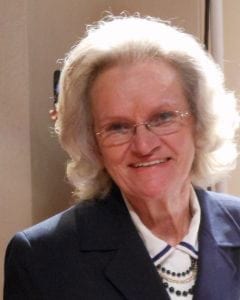While most of us have trouble accepting our limitations, it can be especially hard for people whose limitations are due to a rare disease.
In meeting with and corresponding with many families who are also dealing with rare diseases, I constantly see this strong desire for independence. I also see a reluctance to accept help, or to even accept the fact that we need help. It’s easy to feel frustrated when we’re dealing with pain and the many restrictions which can accompany a rare diagnosis. Unfortunately, this pain can also cause us to miss out on social interactions which would otherwise be helpful for our emotional health.
The Desire for Independence
I identified with an ad that ran years ago where the producers of the commercial were promoting a headache remedy. It showed a grown woman and her mother doing something together. The woman thought her mother was interfering with the way she was doing it and she snapped, “Mother, please! I’d rather do it myself!”
That strong desire to do things for ourselves shows up early in life when children try to feed and dress themselves. We hear toddlers say, “I do it myself.” When we try to tell them what to do, they often say that favorite word of a two-year-old, “No!”
The desire also shows up later in life and in more extreme scenarios. For instance, when large groups of people band together and fight to become independent nations. My own country celebrates our Independence Day every year. I always thought it was most appropriate that our oldest daughter, Kelley, was born on Independence Day, as she strove for independence throughout her life while dealing with an ultra-rare disease.
Learning to Ask for Help
Like many rare diseases, Kelley’s condition was progressive, causing her to lose the ability to do many things for herself that she had once been able to do. Sometimes she wore herself out trying to accomplish something while recovering from surgery. She tried to apologize to healthcare providers if they had trouble setting up intravenous lines due to her worn-out veins, or if she needed more help than she thought she should. I would remind her that all of those people would be out of work if they didn’t have people to care for. We had to admonish her to take it easy on herself and remind her that accepting help is really an exercise in humility.
Humility may be one of the most difficult virtues for humans to achieve.
Most people face decline as they age, but patients with rare diseases often must face decline early in life. The truth is that we all, especially those of us in rare disease families, need to humble ourselves to accept help from others. So, I’d like to pass along the recommendation that when someone asks you if they can help, let them!
Accepting What People Can Give
That said, please keep in mind that not everyone is always able to follow through despite saying they want to. Someone might say, “let me know if there ever is anything I can do to help you.” And they might mean it at the time they say it. However, sometimes life happens and changes what we’re able to offer. I recall an incident where I had helped a friend handle a problem, and she was so appreciative that she made that offer. Yet, when the day came that I decided to take her up on it, she wasn’t as ready as I expected her to be. I still chuckle when I recall her saying, “Oh! Isn’t there something else I could do instead of that?” I was able to find an alternative way for her to help us and all was well.
I can still identify with all who want to, “Do it myself”, but sometimes as rare disease families, there are times when it’s better to accept help.
 About the Author: Denise Crompton and her husband Bob, raised four children, the oldest of whom, Kelley, had the rare disease of Mucolipidosis 3. The many years that they spent caring for Kelley prompted Denise to write two books. Kelley’s Journey: Facing a Rare Disease with Courage chronicles their own daughter’s experiences. Diagnosis: Rare Disease includes some of the experiences of 12 more families, and was written to help raise awareness of all that is involved in living with rare conditions. All of Denise’s royalties go toward rare disease research. The Cromptons live in New Hampshire, where they spend their retirement years enjoying their many grandchildren, while still reaching out to help families with rare diseases.
About the Author: Denise Crompton and her husband Bob, raised four children, the oldest of whom, Kelley, had the rare disease of Mucolipidosis 3. The many years that they spent caring for Kelley prompted Denise to write two books. Kelley’s Journey: Facing a Rare Disease with Courage chronicles their own daughter’s experiences. Diagnosis: Rare Disease includes some of the experiences of 12 more families, and was written to help raise awareness of all that is involved in living with rare conditions. All of Denise’s royalties go toward rare disease research. The Cromptons live in New Hampshire, where they spend their retirement years enjoying their many grandchildren, while still reaching out to help families with rare diseases.


